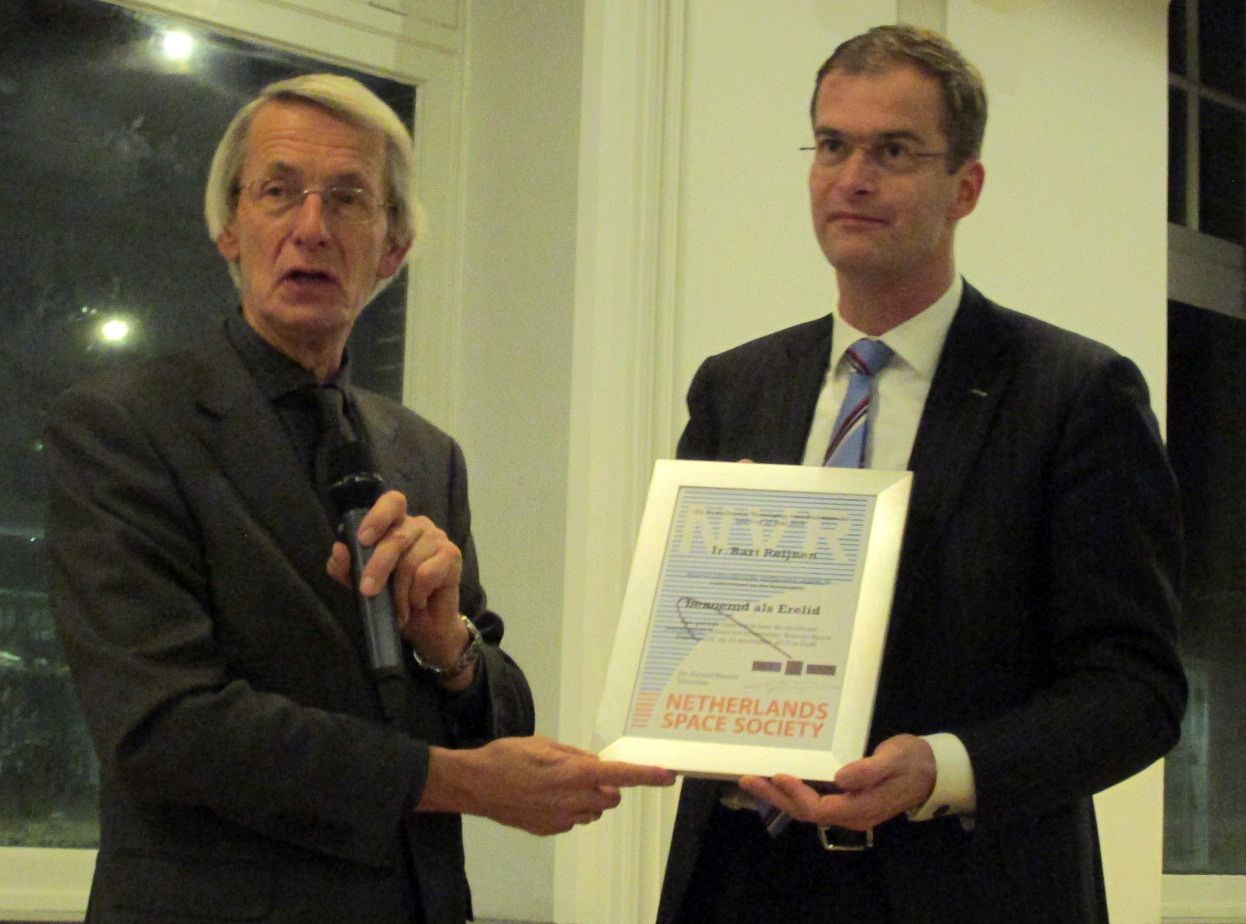The hot topic of robotic space exploration was the symposium theme marking the appointment of TU Delft alumnus, Bart Reijnen, as honorary member of the Netherlands Space Society on December 14.
Reijnen earned an MSc in aerospace engineering at TU Delft in the early 1990s and is now head of Orbital Systems and Space Exploration as well as head of Site Bremen Airbus. Three expert speakers presented future developments in the field to an audience of about 100 as part of a festive evening recognising leading Dutch space authority Reijnen and his exemplary international career. The Netherlands Space Society organised the event in collaboration with the TU Delft Space Institute and SpaceNed at the TU Delft Science Centre.
Outer solar system exploration
Professor of Planetary Exploration at Aerospace Engineering, Dr. Bert Vermeersen, outlined TU Delft’s contribution to the Jupiter Icy Moon Explorer project (JUICE). The three Jovian moons Ganymede, Callisto and Europa may have life in the oceans under their icy crusts. The European Space Agency (ESA) and Airbus Defence & Space will build the explorer to characterise them, with launching scheduled between 2022-26, to arrive at Jupiter eight years later. Delft Space Institute will participate in instrument projects for JUICE and will be well positioned to opt into future robotised missions. These will use satellites, remotely operated rovers, moles, boats, submarines and airborne vehicles.
Real time telerobotics
With a show of hands, many in the audience said they would like to fly to Mars. But few would like to stay there. To address this, Dr. André Schiele, associate professor of Biomechanical Engineering at Mechanical, Maritime and Materials Engineering and head and founder of ESA Telerobotics & Haptics Lab, is betting on telepresence technology. Human controllers can operate robots with realistic sensory feedback from afar, optimising the synergy between human and robotic capabilities. After the group’s breakthrough in September 2015 when, without previous training, an astronaut on the international space station successfully controlled a robotic vehicle and hand on earth, Schiele’s team are developing shared control between robots and humans. Robots are drilled in actions to develop task algorithms to aid human controllers, overcoming communication delay over interplanetary distances. Now the challenge is to make these techniques economically affordable and apply them commercially in space.
Accessing the eighth continent
Finally, John Thornton, CEO of the US firm Astrobotic, presented his company’s affordable commercial courier service to deliver international payloads to the moon. Moon missions provide inspiration and are drivers of exploration to Mars and beyond and development of future resource and tourism markets. The company is building its own lunar lander and aims to provide lunar infrastructure and communications to its potential customers, all the space agencies in the world, not just the big players (USA, Russia and China).



Comments are closed.